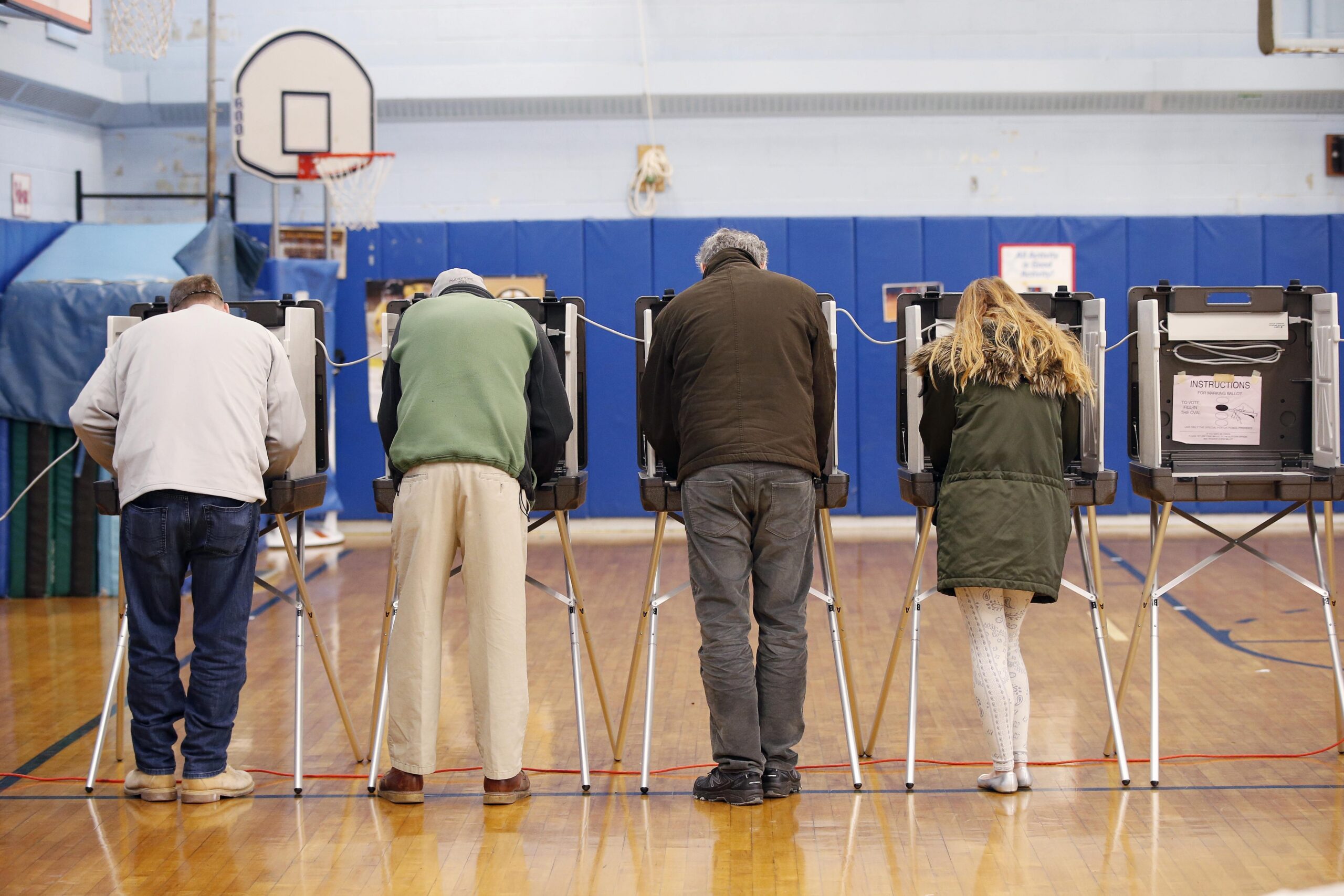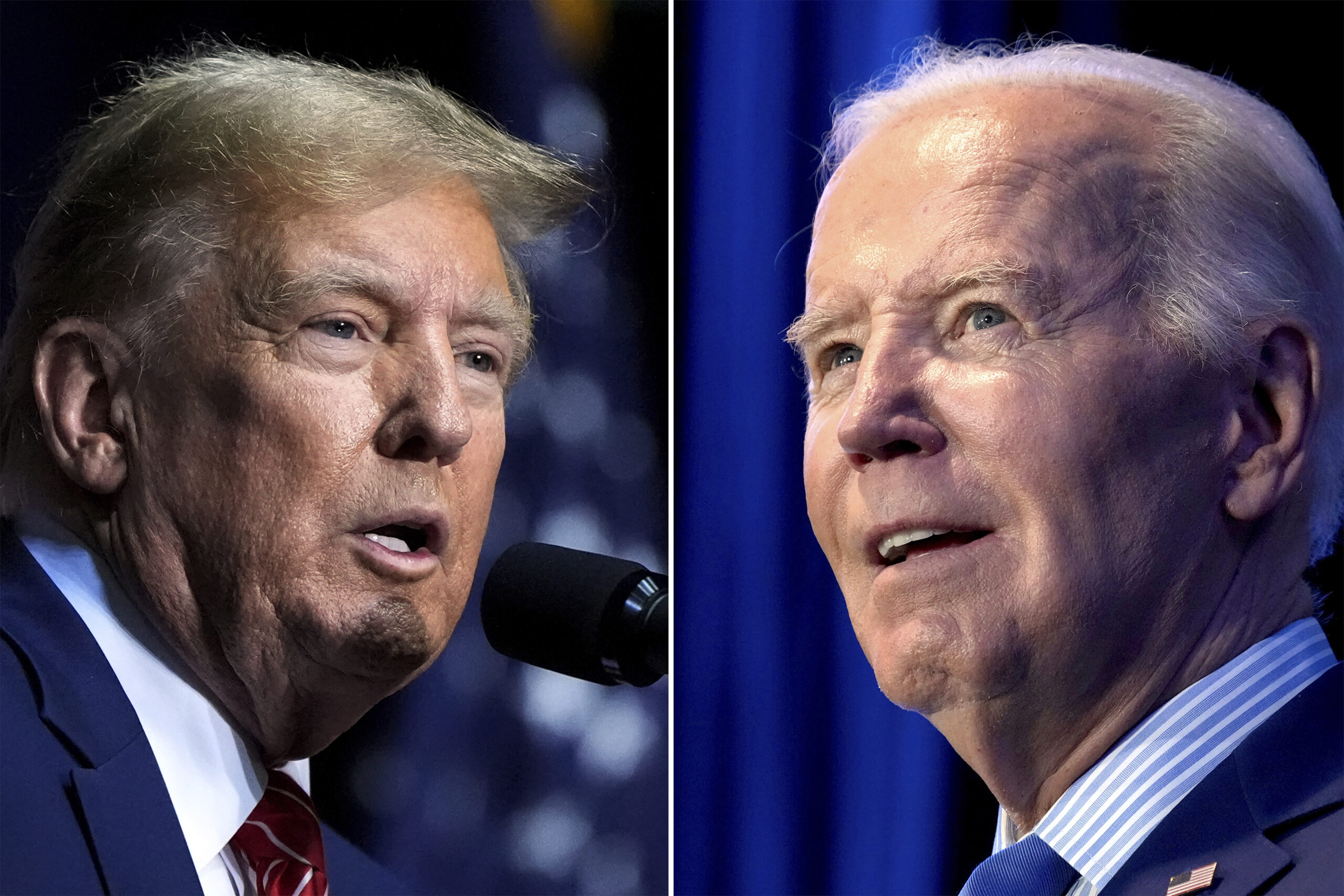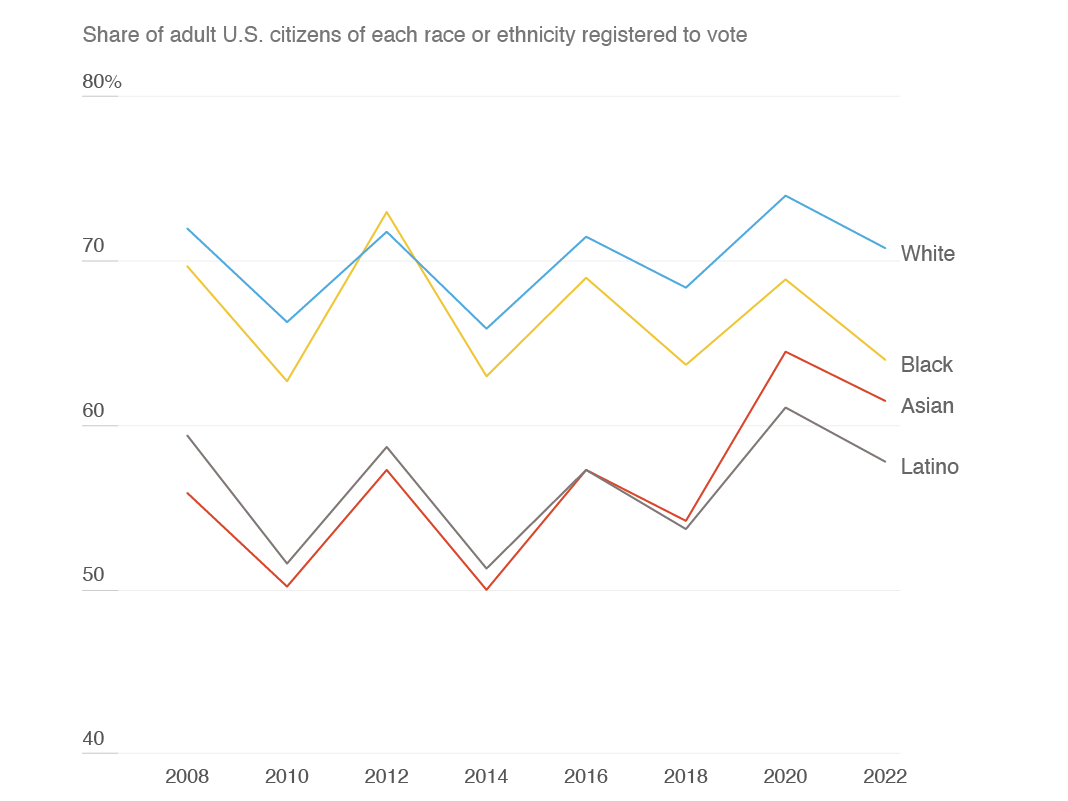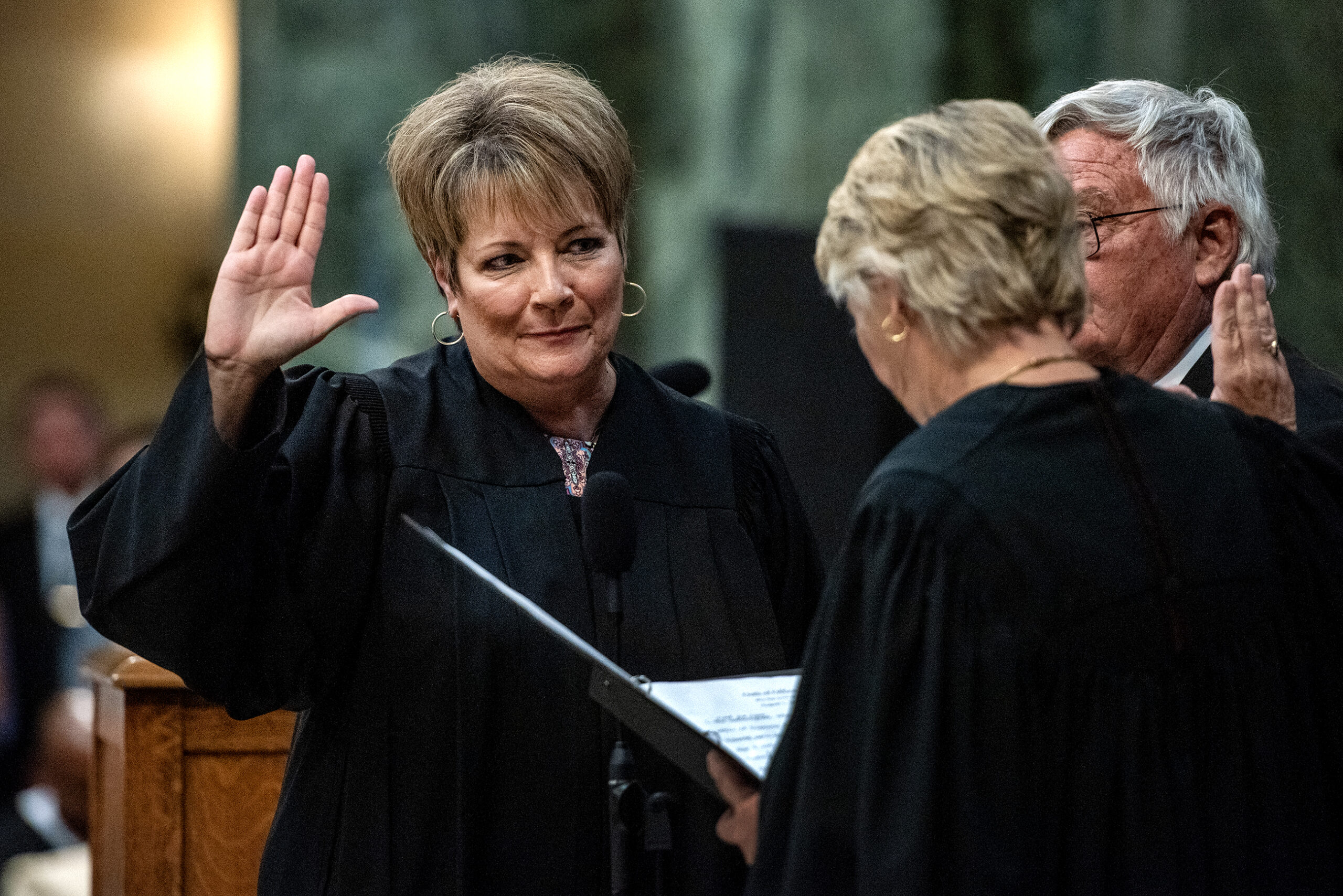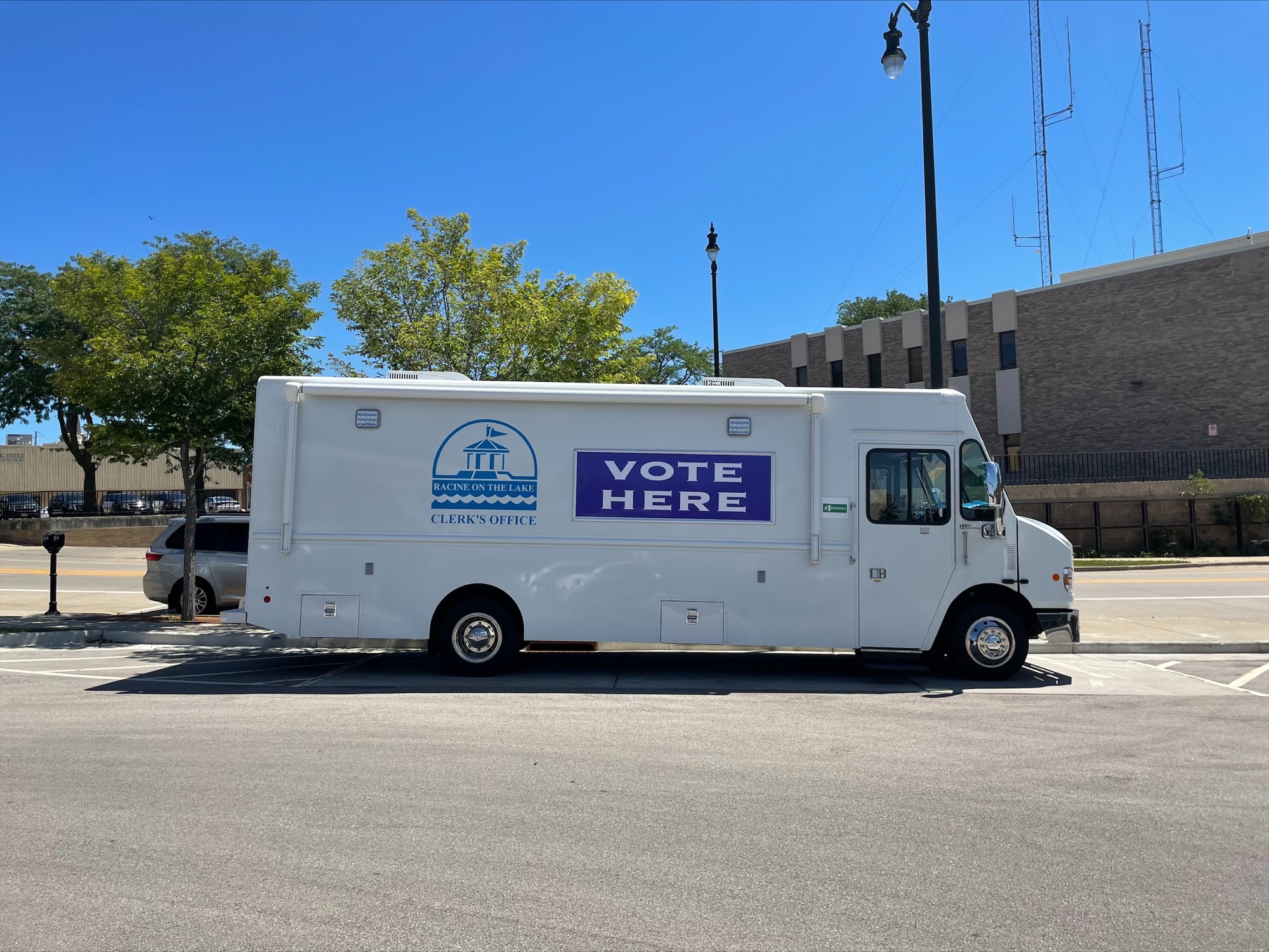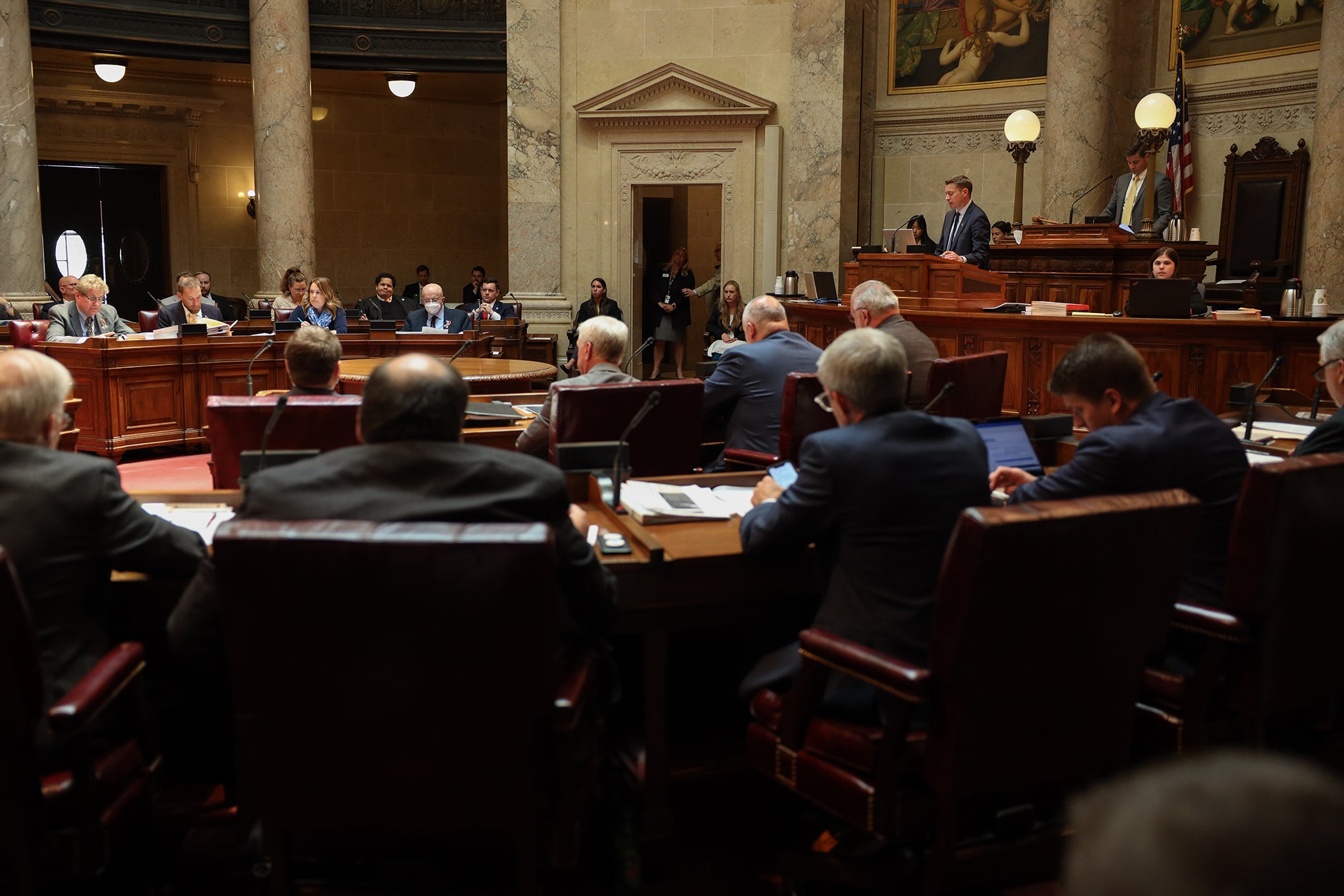For years, proposals to make Election Day a federal holiday have circulated to no avail.
And a provision in House Democrats’ proposed anti-corruption bill — their first while in the majority — aiming to do just that has caught a lot of people’s attention.
But the bill that would give some voters a paid day off to cast their ballot — among other components looking to overhaul the way Americans vote — was swiftly met by challenges from Republicans.
Stay informed on the latest news
Sign up for WPR’s email newsletter.
Senate Majority Leader Mitch McConnell, R-Kentuck, has argued the bill is nothing more than a “power grab” by Democrats and the likelihood of it passing is slim.
Democrats say it’s about addressing barriers to voting access and the move would help combat Americans notoriously low voter turnout rates.
Yet Beloit College political science professor Philip Chen says the parties are having two different arguments about two different issues.
“Federal workers do tend to vote Democratic,” Chen said. “But you sort of have to separate out the political from the intent of expanding access to voting, and I think that’s where … politicians are getting tripped up.”
The federal workforce only makes up about 2 percent of the nation’s workforce, and while private companies aren’t required to give federal holidays off, many would likely follow suit, Chen said.
More than 20 states already require employers to offer paid time off to vote in some form, and additional states allow unpaid time off to vote.
America is an anomaly compared to other first world countries when it comes to voting, Chen said. Many vote over the weekend, over an extended period of time or election day is designated as a national holiday.
While Americans turn out in low numbers for a variety of reasons, according to the Pew Research Center, 67 percent of registered voters chose not to vote in 2014 because of a lack of time.
“The thing we see as political scientists that drives people away from voting is … the costs of voting,” he said. “These don’t have to be economic costs, they can be sort of informational cost … the cost of finding child care, of finding time off of work.”
But making election day a federal holiday alone likely isn’t enough to make voting more accessible, Chen said. His first strategy would be for universal voter registration.
“It has to be a suite of proposals,” he said. “Any one of these in isolation is unlikely to have any particularly strong effect. But I think it’s giving … people paid time off and then creating the incentive for people to be registered.”
Yet some critics push back, saying that voting in and of itself should be enough of an incentive.
“Civic duty is a major motivator for people,” Chen said. “If you don’t feel a civic duty to vote, you’re fairly unlikely to vote.”
“But it’s not enough to overcome some very real costs for some voters,” he said. “And I think that’s the challenge … how do we overcome those costs.”
Wisconsin Public Radio, © Copyright 2024, Board of Regents of the University of Wisconsin System and Wisconsin Educational Communications Board.

